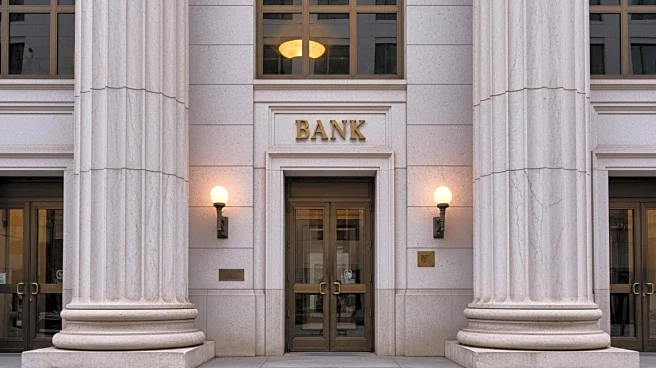What's Happening?
House Judiciary Committee ranking member Jamie Raskin has requested financial records related to Jeffrey Epstein from the CEOs of four major banks: JPMorgan Chase, Bank of America, Deutsche Bank, and Bank of New York Mellon. This request follows a blocked subpoena effort by Republicans. Raskin's letters question how Epstein managed to conduct $1.5 billion in suspicious transactions without detection. The letters emphasize the banks' role in potentially covering up Epstein's activities and urge them to reveal the truth. Deutsche Bank has responded, acknowledging its historical connection with Epstein and its cooperation with investigations, while JPMorgan declined to comment.
Why It's Important?
The investigation into Epstein's financial dealings is significant as it highlights potential lapses in the banking sector's oversight of suspicious activities. The banks involved have previously settled lawsuits related to Epstein's sex trafficking operations, indicating a broader issue of financial institutions' accountability. This development could lead to increased scrutiny and regulatory pressure on banks to improve their monitoring systems. The outcome of Raskin's request may impact public trust in these financial institutions and influence future legislative actions regarding financial transparency and accountability.
What's Next?
If the banks comply with Raskin's request, it could lead to further revelations about Epstein's financial network and potentially implicate other individuals or entities involved. The investigation may prompt legislative efforts to strengthen financial oversight and reporting requirements. Additionally, the banks' responses could affect their reputations and relationships with regulators. The ongoing scrutiny may also influence how banks handle similar cases in the future, potentially leading to reforms in their compliance and monitoring practices.
Beyond the Headlines
The ethical implications of the banks' involvement with Epstein raise questions about corporate responsibility and the moral obligations of financial institutions. This case underscores the need for a cultural shift within the banking industry towards prioritizing ethical conduct over profit. Long-term, this could lead to changes in how banks approach client relationships and the criteria they use to assess risk and compliance.









